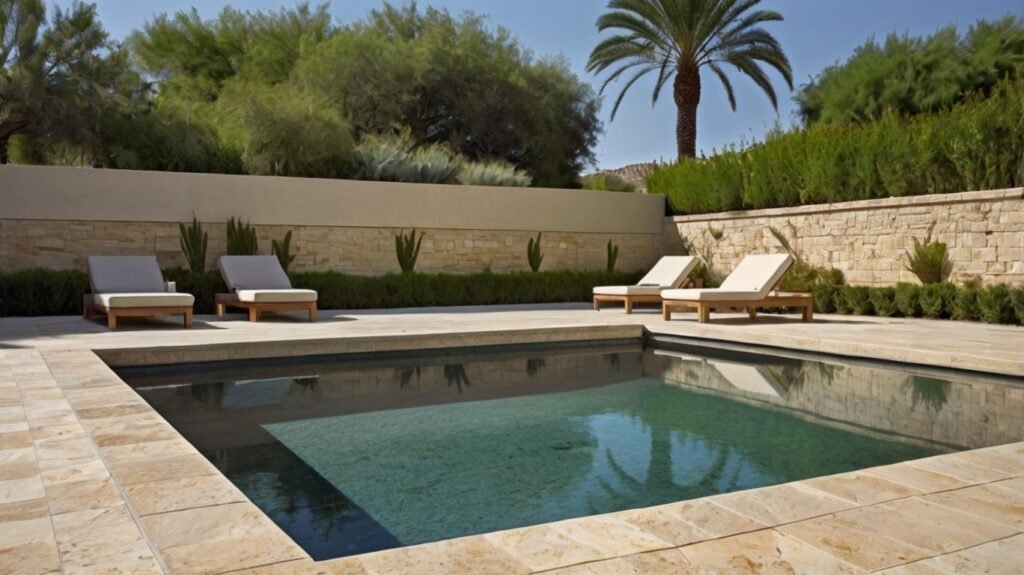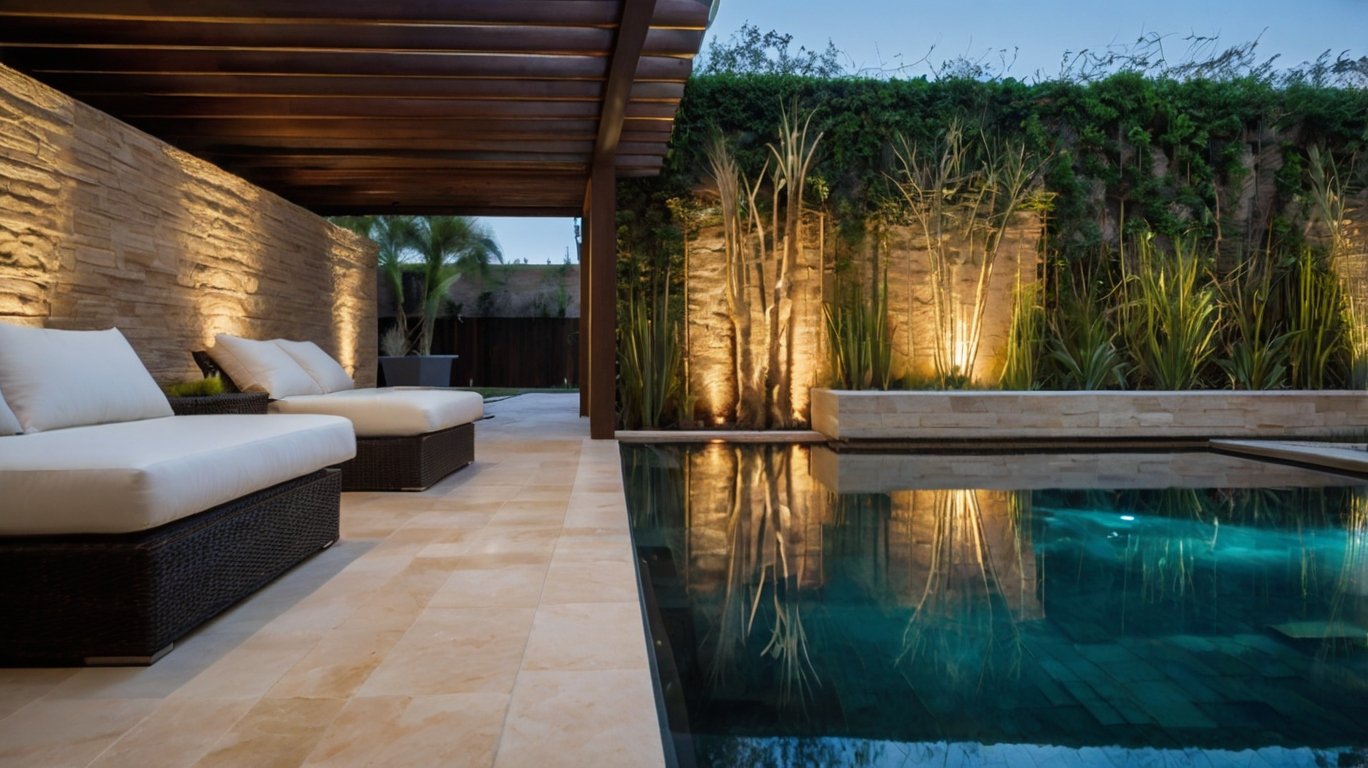Pool decks are the backbone of any backyard oasis, and they come in a variety of materials, finishes, and designs. In that regard, travertine is one of the most popular choices among homeowners for their pool deck. Its unique beauty, designs, shades and colors, availably, and practicality are some of the reasons for its popularity.
What is Travertine?
Travertine is a natural stone that is formed from the sedimentary rock limestone. It is characterized by its unique porous texture, which gives it a rustic and earthy feel. Travertine can be found in various regions around the world such as Turkey, Italy, Mexico, and Peru.

After being quarried, travertine cut into pavers or tiles, which are then used for a variety of purposes including pool decks, patios, and interior flooring.
Travertine Pool Deck Pros and Cons:
If you’re considering using travertine for your pool deck but still unsure about its pros and cons. In that case, we have got you covered. Let’s take a look at some of the advantages and disadvantages of using travertine for your pool deck.
Pros:
When we talk about travertine advantages, they’re numerous. Each of them is a reason to consider using travertine for your pool deck.
Durability:
A pool deck must be durable enough to withstand the harsh weather and constant usage. This natural stone has been used for centuries in construction, showcasing its durability. Travertine can withstand heavy foot traffic and extreme temperatures without showing any signs of wear and tear.
Heat Resistance:
As the travertine is a natural stone, it has the ability to remain cool even when exposed to direct sunlight. Moreover, travertine formed from limestone, which has a lower heat absorption rate compared to other materials.
Slip-Resistance:
No one wants to fall and get embarrassed, especially in their own home. Travertine has a naturally non-slip surface and have the ability to absorb water from its surface. Its surface are filled with tiny holes and channels that allow water to seep through, making it less likely for anyone to slip on a wet surface.
Styling Option:
Travertine comes with a variety of colors and patterns, giving homeowners the freedom to choose a style that suits their taste. From beige, ivory, gold, and silver shades to unique veining patterns, travertine adds a touch of elegance and sophistication to any space. It can be used both indoors and outdoors, making it a versatile choice for flooring or wall cladding.

Usage:
This natural stone have been used for centuries in various architectural and decorative purposes, from ancient Roman structures to modern-day luxurious homes. It has stood the test of time, proving its durability and longevity. Its versatility in usage also makes it a popular choice among designers and homeowners alike. From bathrooms, kitchens, living rooms to outdoor patios and pool decks, travertine can elevate the aesthetic of any space.
Maintenance:
Unlike other types of stone, travertine requires maintenance but it is relatively low maintenance compared to other natural stones. You can easily clean and maintain travertine by simply sweeping or mopping regularly and wiping any spills immediately. For brand new look, pressure washer with wide spray nozzle can help keep the surface clean.
Cons:
Even though travertine has its own unique charm and qualities, it also has some cons that should be considered before investing in this type of stone.
Initial Cost:
Travertine can be more expensive than other natural stones such as granite or marble. This is because travertine you need to import the stone from certain countries, which can increase shipping and handling costs. However, keep in mind that travertine is a natural and durable stone that will last for years to come, making it a valuable long-term investment.
Porosity:
Travertine is a porous stone, which means that it can absorb liquids and stains more easily than other types of natural stones. This may be a concern for areas such as kitchens or bathrooms where spills are common. However, this can be mitigated by sealing the stone regularly, which will help prevent staining and maintain its beauty.

Complexity:
Travertine is a complex stone that has unique patterns and variations, giving it a one-of-a-kind look. This can add character and depth to any space where it is used. However, this complexity can also make it challenging to match pieces if additional tiles are needed in the future. It is important to purchase enough material initially or keep extras for future repairs.
UV Sensitivity:
Travertine is sensitive to UV light, which can cause it to fade or change color over time. This is especially true for lighter shades of travertine. To avoid this, it is recommended to use curtains or blinds to protect the stone from direct sunlight.
Remarks:
The travertine makes for a beautiful and unique addition to any space, but it’s important to understand its properties and care for it properly to maintain its quality and appearance. With the right knowledge and maintenance, your travertine can last for many years to come. So if you plan on using this natural stone in your home or project, be sure to keep these tips in mind. And remember, when in doubt, always consult with a professional for the best advice on caring for your travertine.




